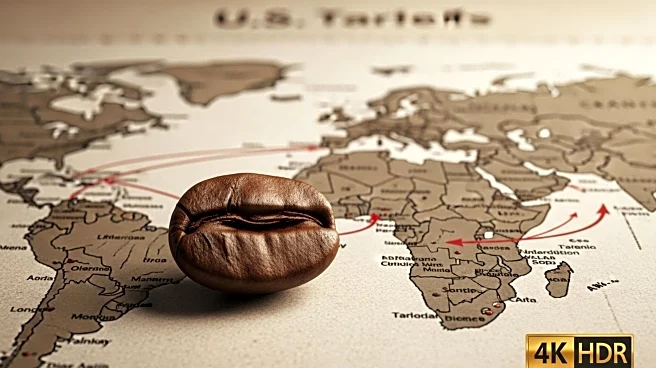What is the story about?
What's Happening?
The U.S. has imposed tariffs on coffee imports, affecting major producers like Brazil and Switzerland. Brazil faces a 50% tariff, leading to a significant drop in coffee imports to the U.S. Some companies are considering moving production to the U.S. to avoid tariffs. The tariffs could raise U.S. coffee prices by the end of the year, depending on blends. The situation is prompting coffee producers to explore alternative markets, such as Asia, to mitigate the impact.
Why It's Important?
The tariffs on coffee imports could reshape the global coffee market, affecting prices and production strategies. U.S. consumers may face higher coffee prices, impacting affordability and consumption patterns. The tariffs could incentivize companies to relocate production to the U.S., affecting international trade dynamics and economic relationships. The shift in production could have broader implications for global supply chains and market competitiveness.
What's Next?
The coffee industry is likely to respond with strategic adjustments, including potential production shifts to the U.S. and exploration of new markets. The impact on consumer prices and market dynamics will be closely monitored. Ongoing trade discussions and negotiations may influence future tariff policies and international trade relations. The response from major coffee-producing countries and companies will be crucial in shaping the industry's future.















